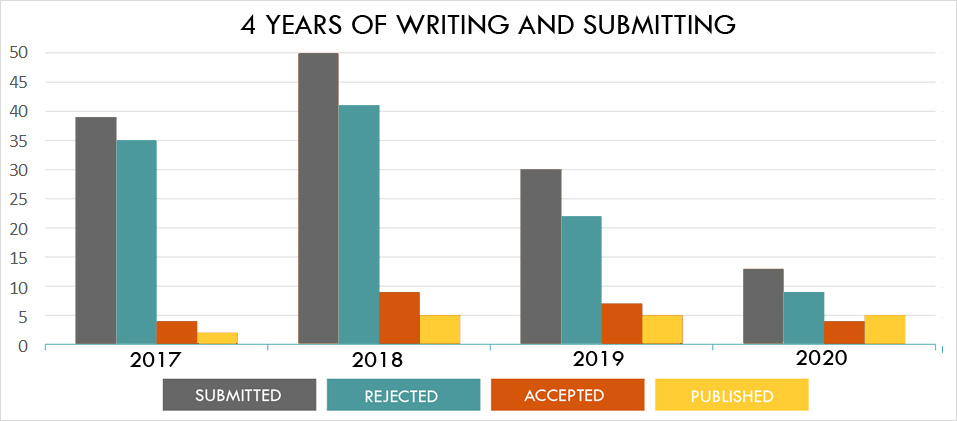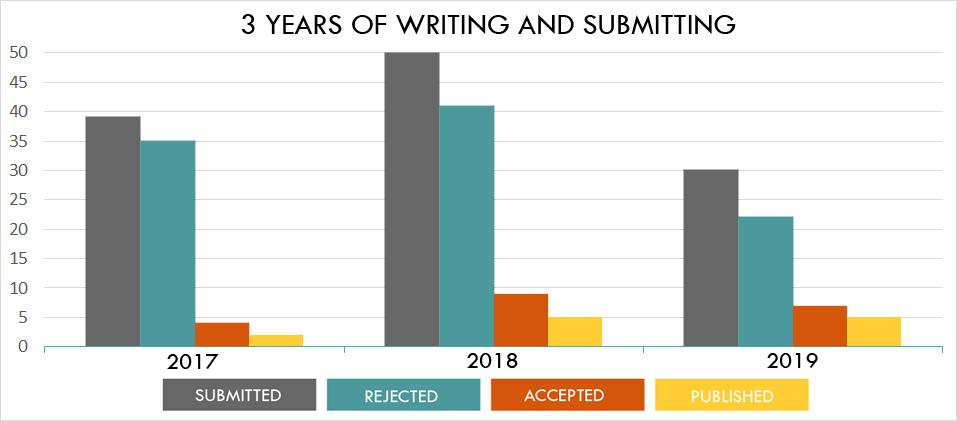Here is another in my series of writing ‘B-Sides’ — you can find the first entry here.
This one started out as a challenge to myself: try and write a story perpetuating all of the mistakes that new writers make. So, if you think it’s poorly written… well, exactly.
Penned In
“Can you imagine‽” Marjorie exclaimed to the group of amateur writers, her tone conveying the interrobang. “She collects ten thousand Euros cash from the local branch in Perth, and then mails the whole lot to her hotel in Rome—regular surface mail!—so that she’ll have money to spend when she gets there.”
“And when she arrives, is the money waiting for her?”
“I haven’t decided yet. What would be better for the story?”
“She gets the money back.”
“She doesn’t get the money back.”
“Hold on,” said Victoria. “She doesn’t get the money back, and then, when all hope seems lost, she does get the money back.”
Marjorie clapped her hands together. “Yes! Perfect. That has tension baked in. People love money, so it’s upsetting to lose.” Everyone nodded sagely.
The five of them were in a room. Rectangular, as rooms so often tend to be. It had four white walls and a ceiling, also white. Three halogen bulbs, suspended from the ceiling at equal intervals, shone neutrally, casting everything in an even, white light. A large window was set into the wall on Marjorie’s left-hand side. Later on, one of the characters will look out this same window and have a realisation.
A whiteboard had been positioned in a manner that blocked access to the only doorway in or out. Upon the whiteboard, someone had scrawled: Ideas! in large looping script. To Gabriella, the newest member of the group, the word felt like a threat.
The only other feature of the room worthy of note was the rifle. As the group was setting up for the meeting, someone had barged in, hung it on a rack against the wall, and then left. No one was sure why the rifle was there, so they all resolved to ignore it.
It was David’s turn to talk about his work. David’s unkempt beard literally smothered his face. “I’m working on a new story,” he said, his voice sounding muffled. “The protagonist is an author who discovers—”
“Spare us,” interrupted Victoria, in a very rude manner. “Putting writers into one’s story is tedious.”
“It’s meta,” David protested grumpily.
“No it’s not. Or if it is, it’s meta-lazy.”
“What about Ryan O’Neill?”
“Who?” barked Victoria. Marjorie and Gabriella shrugged their shoulders.
“Writing about writers is very inside baseball,” declared Sue. Sue was Victoria’s lackey.
Marjorie said, “I despise Americanisms.” This brought the discussion to a halt, because of course everyone despised Americanisms, and everyone tried hard to think of an Australian equivalent for the idiom inside baseball, but no one could.
David leaned forward as if to continue with his story idea, but quicker than a New York minute, Victoria beat him to the punch. “Sue, what have you been working on?”
Sue had a debilitating, secret addiction to poker machines. She said, “My story is about a woman who lives in a cottage on the top of a cliff overlooking a beach. She is rather lonely. Sometimes the weather is pleasant, and she goes for a walk along the beach, and she collects sea shells. Sometimes the weather is rainy and cold. Even when it’s rainy and cold, this woman will walk along the beach until her clothes are wet and she starts to shiver, which I think says a lot about her character and her inner struggles.”
“What happens?” asked Gabriella.
“Pardon?”
“What happens to the woman in the story?”
Sue sniffed. “I just told you what happens.”
Gabriella laughed and looked around the room for support, but everyone else was inspecting the beige-coloured carpet. “Remember,” warned Marjorie, “that this is meant to be a safe, supportive environment. No attacks on other people’s work.”
“I wasn’t,” replied Gabriella. “I was just—”
Victoria shook her head, appalled at Gabriella’s insensitivity. “And what have you been working on?” As if to remind everyone of the import of this question, Victoria turned to regard the whiteboard. The intensity of her glare cast foreshadows across the room.
Now Gabriella felt uncomfortable. She was an administration officer at a local hospital. Her job was desperately boring, and so she’d joined the writers’ group in the hope of exploring her creative side. She was secretly attracted to David. The relentless fussing and negativity from the three older women was driving her insane.
In answer to Victoria’s question, Gabriella replied, “Nothing in particular. I suppose I’ve been wondering. Just generally wondering.”
Marjorie tutted. “You won’t produce anything unless you start with an idea. Something concrete and specific. Write down some thoughts. They don’t have to be perfect. We’ll help you, give you feedback. That’s what we’re here for.”
“I’m sorry, I don’t have anything ready to be written down.”
“Well, have you heard any ideas today that have inspired you?”
Gabriella shook her head, embarrassed. “Nothing, I’m afraid. It’s just— …Real people aren’t like that. These characters you’ve been describing: they’re trite. Too one-dimensional.” She paused, her gaze travelling around the white, featureless room, and the nondescript faces of her fellow group members.
“Do you suppose…?” But none of them did, so Gabriella stood up and walked to the window. Outside, it was an implausibly beautiful day.
“(#25 of 365) Emptiness” by j-fin is licensed under CC BY-NC-ND 2.0










